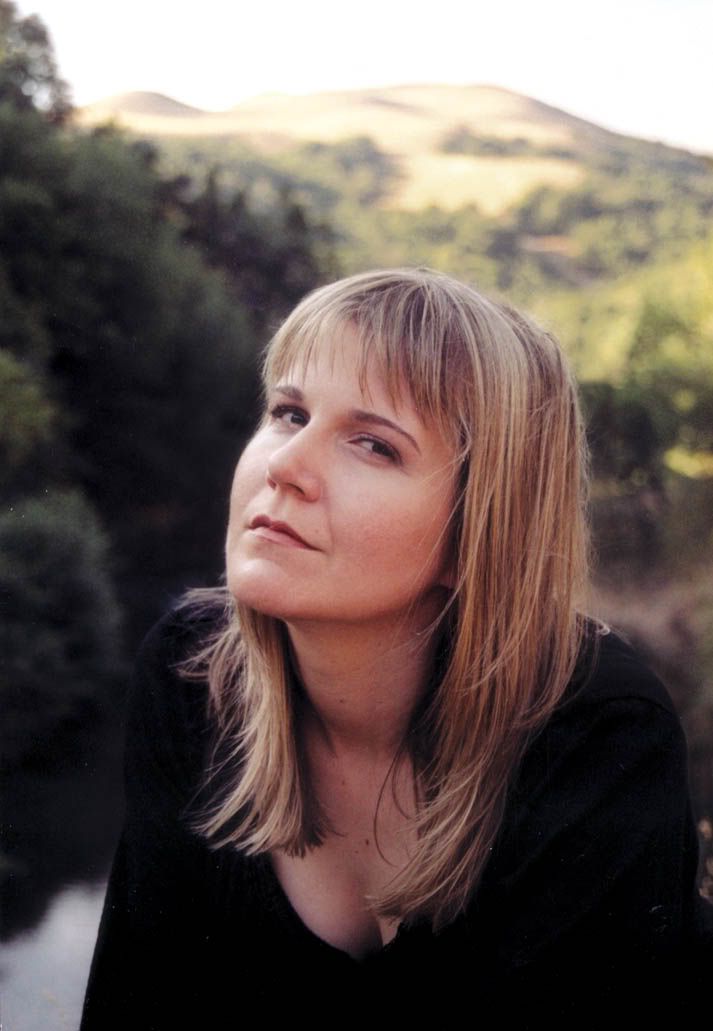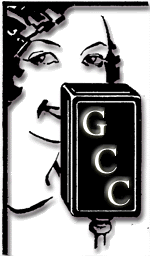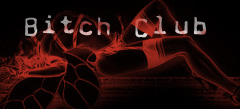Date, Jane, Date!

Meet the reluctant members of The Breakup Club:
Lucy Miller-Masterson: Superwoman Lucy finds her husband’s list of New Year’s resolutions and there’s only one: Leave Lucy.
Miranda Miller: Lucy’s younger sister has been pining for her ex for six months. Which beats trying to figure out what to do with her life at age 29. But then she inadvertently makes the love of her life propose to another woman….
Christopher Levy: Lucy’s new boss (why’d he get the promotion, anyway!) and a recently separated dad with weekend custody of his one-year-old, he has no clue how to navigate his new life as a single father, but the sanctimommies at the playground are full of annoying answers.
Roxy Marone: Twenty-five and dating her fiancé since first grade, winner of the Miss Traditional pageant goes on a life-changing job interview instead of to her own wedding.
These four co-workers with nothing in common find they have a lot to talk about ...
"Melissa Senate is definitely one of my favorite chick-lit writers. Her books are always feel-good, fast-paced and hilariously funny!" --Sarah Mlynowski, bestselling author
"One of the many gifts Senate brings to the writing table is her ability to establish equally compelling stories for four fascinating characters. That she does so with humor and insight adds to the pleasures of this novel." 4stars, RT Bookclub magazine
Melissa Senate’s debut novel, See Jane Date, launched the Red Dress Ink imprint in 2001, has been translated into over ten languages, is an answer to a question in the 20th Anniversary Edition of Trivial Pursuit,and was made into a television movie for ABC Family.Her second novel, The Solomon Sisters Wise Up (2003), was hailed as “another winner!” by Booklist. Her third, Whose Wedding Is It Anyway? (2004), the spin-off to See Jane Date, was chosen by Marie Claire magazine as a Top Ten Must-Read pick.Melissa also contributed short stories to anthologies: American Girls About Town and Flirting with Pride & Prejudice: Fresh Perspectives on the Original Chick-Lit Masterpiece.Her debut novel for teens, Theodora Twist, will be published by Delacorte Press in May.www.melissasenate.com.
MO'C: Your first novel, See Jane Date, inaugurated the Red Dress Ink series. Can you please tell your publication story?
MS: In the summer of 2000, I was working at a YA book packager and waiting for September to come so I could start grad school full-time, when I got a phone call from an editor I used to work with at Harlequin (I was an editor there for ten years and had recently left). She told me that Harlequin was starting a new imprint of trade paperbacks dedicated to chick lit, and since I was (then) the stereotypical chick lit protagonist and known at Harlequin for being a creative writer, was I interested in trying my hand at writing a novel? From the get go, this editor was convinced that I could not only write an entire novel but nail what they had in mind. Until this point I had written NOTHING. But the editor was so encouraging, so sure that I could do it, that I sat down and wrote the book I always imagined I'd write if I thought I could write a novel (but I didn't think I could). I sent the first three chapters and a synopsis, the editor said she loved it and I should write the rest as fast as I could so that I could be considered for the launch, so I just wrote my butt off. Six weeks from that inital phone call, I sent in the manuscript, having no clue that they'd not only buy it, but really launch the imprint with it. That any of it happened still amazes me. I owe so much to my editor. One of the reasons I became an editor instead of a writer in the first place was because I'd been discouraged in my creative writing program in college for writing what was essentially chick lit type stories. It's amazing what encouragement can do. I still wonder if I would have ever written a novel at all had I not gotten that call.
MO'C: Your book was paired with Douglas Coupland's, Jay McInerney's, and Jonathan Franzen's for a recent college class. Can you please discuss a little of what these male writers have to to say to men of our generation (I assume we share a generation) and what female authors have put forth on the other side? I wonder if you could also comment a bit on other writers of our generation, male and female.
MS: I haven't read enough of any of the above male writers to really comment in depth (I got through a quarter of The Corrections and barely remember Bright Lights, Big City), but I'm having a hard time imagining men of our generation being interested in reading The Corrections or Jay McInerney. Douglas Coupland seems much more male-focused in the way that Nick Hornby's first few books were. I have a hard time imagining a guy reading A Long Way Down. When I read Meg Wolitzer's The Wife, the first thing I thought of was: this sounds like a man's point of view, much like Tom Perotta's female characters in Little Children sounded like men to me. Ugh, this is all crazy--I really haven't thought too much about this topic, but I wonder why I have thesse associations. I'll need to think about this!
MO'C: Please tell us what it's like to have your book made into a movie! Ups, downs, funny and sad moments...?
MS: Once the book was optioned by a producer, I had no idea there was an actual deal until I read about it online in the Hollywood Reporter. I found out everything connected to the movie by Googling! I guess that was a tiny bit of a "down," but I was so happy the movie was being made that everything was too much of an up to care that I wasn't in the loop at all. When I found out via Google who the scriptwriter was (Friends and Gilmore Girls writer), I knew I'd love the movie. And I did. I loved the cast, I loved the film itself, I loved that when I watched it for the first time, I felt as though I was watching my Jane onscreen, despite how much was changed. The movie will be aired on Sunday, February 12th at 6pm on ABC Family. It's really cute!
MO'C; Do you base any of your characters on yourself?
MS: My first three books were based on me 100% Most of See Jane Date was plucked from my experiences in publishing and misery in dating. The Solomon Sisters Wise Up came to me when I, like sister Sarah, became pregnant two months into a new relationship and bought myself a copy of What To Expect When You're Expecting. My third, Whose Wedding Is It Anyway? sends Eloise on a journey to find her biological father, something I myself haven't done (and won't), but wanted to explore through a character who came out of my head. (She was also planning her wedding when I was planning mine!) But there's very little me in The Breakup Club. I think because I wrote it when I moved from the New York City, where I'd lived my entire adult life, to the woods of Maine, and I had a major identity crisis. The book I"m writing now is the first I'm setting in Maine, and there's a lot of me in the protogonist. I'm still homesick, but I've come to appreciate the woodsy life.
MO'C: You write short stories, too. I find the short story an incredibly difficult form. How do you manage them? Do you know all along they're going to be shorts or do you just write and see where you end up?
MS: The two stories I wrote were commissioned for the anthologies, so I wrote them specifically. I love, love, love the short form! I read an interview with an author who said the great thing about writing short stories is that you can actually keep the entire thing in your head. I totally agree!
MO'C: What do you make of the statement made by agent Kristin Nelson that chick lit is becoming a hard sell? Do you think she's right? If so, why?
MS: When my first book came out in late 2001, an agent said to me (I didn't have an agent then): "Don't write another chick lit. The genre will be dead in two years. Write a big woman's fiction book with your chick lit voice." I pretty much just sat down and wrote the only book I could at that time, which was about pregnancy and motherhood and breakups and family dysfunction and sisterhood and friendship, and that was just fine with Red Dress Ink, which assured me that chick lit had evolved to encompass "the female experience" and would continue to evolve. My voice is what it is, but what I'm interested in exploring in my fiction will always change. Ya can't label that. I don't think chick lit is dead at all. Publishing houses might not be clamoring to find three books a month because they "sell like hot cakes;" they'll simply know a good chick lit when they see it and buy that one and publish it. Chick lit will now be bought/published/marketed the way most people thought it should be in the first place: selectively. That's a good thing.
MO'C: What book has influenced your life the most, and why?
MS: Anne of Green Gables by Lucy Maud Montgomery. That book assured me from a very young age in a very comforting way that if you have imagination you'll always be all right.
MO'C: What's your writing day like? Any special routines or tips you'd like to share for getting organized and inspired?
MS: My three-year-old wakes me up at 5:30 every morning and says, "Mommy, be a scary monster and chase me!" We do that for three hours, then I take him to preschool and rush back to my little office in my house and write. If I could, I'd wake up at 5:30 and write fresh for four hours and then be a scary monster, but the kid wins. I have four solid hours to write, but I'm always distracted by the internet. When I get stuck in a scene I always end up online when I should be reading or taking a walk to think it through. Hmm--I'm going to try that tomorrow!
MO'C: What advice do you have for would-be authors?
MS: Read like crazy. Write the book you really want to write. Follow your instincts. That's my new mantra. I'm so distracted by comments/reviews, and I have to remember to follow my gut instincts.
MO'C: Thanks so much for visiting us, Melissa!
MS: Thank you so much, Martha, for these great questions. I really appreciate it!!
You heard it here first, ladies and gentlemen. Please check out Melissa's book on Amazon, Barnes and Noble, and your local indie bookseller via Booksense.s novel and how it explored so many angles of heartbreak and moving on. Despite there being four characters and four viewpoints, Melissa Senate managed to give them all enough time so their stories were well-developed. Having a male character in there was also fascinating. This novel was funny, touching and down-to-earth all at once. --Rian Montgomery, ChickLitBooks.com








<< Home